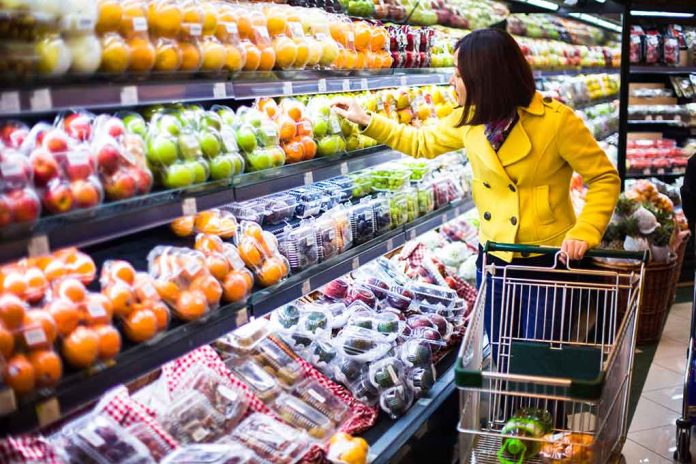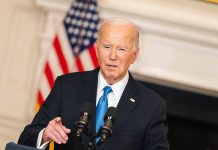
(LibertyInsider.org) – Escalating food prices in Canada has reached a critical juncture, compelling some families to choose between food, housing, and electricity. Unfortunately, the issue isn’t new; price increases have consistently outpaced headline consumer inflation since as far back as 2021. Now, the government is stepping up to tackle the crisis by directly collaborating with major grocery chains on bold cost-control measures.
Metro, Loblaws, Sobeys, Walmart, and Costco, Canada’s largest grocery chains, are collectively pledging to roll out “aggressive” discounts on a variety of essential food items. They have also committed to freezing prices on certain items and engaging in price-matching campaigns over the coming months.
The government believes these measures will provide immediate relief to consumers battling a steep 6.9% year-over-year hike in food prices as of August.
To ensure the grocery chains stay true to their commitments, the federal government plans to establish a special Grocery Task Force. This unit will be responsible for overseeing the enforcement of the pledged measures and investigating practices considered detrimental to consumers, including price-gouging and “shrinkflation.”
Industry Minister François-Philippe Champagne, who met with grocery retailers in Ottawa over the course of several weeks, also unveiled a suite of additional measures. According to CTV News, these changes include the introduction of a Grocery Code of Conduct to foster industry fairness and transparency and enhance the accessibility and availability of food price data to assist smaller market players.
Grocery chains that falter in upholding their commitments may face steeply punitive taxes or other punishments. The government appears determined to help Canadians financially during tough economic times. However, it remains difficult to predict just how effective these changes will be at the present point in time.
Although any progress is positive, it is important to note that the economic burden on Canadian consumers remains significant. Projections from late last year suggested that the typical family of four would spend an additional $1,065 on food in 2023, pushing the total annual grocery bill to around $16,288.
While grocery inflation has affected every region of Canada, some provinces seem to be struggling more than others. Numbers comparing August 2022 to August 2023 show that Quebec reported the highest inflation (8.2%), while Nova Scotia came in at a close second (7.2%). Alberta experienced the lowest increase in prices (6.2%) over the course of the year.
Copyright 2023, LibertyInsider.org














